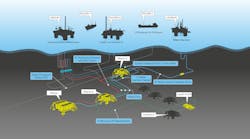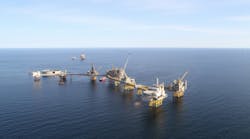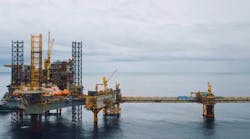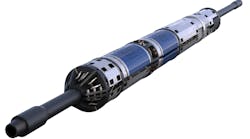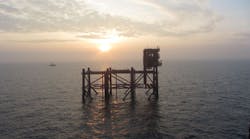Offshore staff
STAVANGER, Norway – Two E&P companies, Sval Energi and Neptune Energy, and UK-based decarbonization specialist Storegga, have applied for a CO2 storage license in the Norwegian North Sea.
The planned Trudvang area could potentially store up to 225 MM metric tons of injected CO2 over a 25- to 30-year period, they claim, or potentially much higher, based on dynamic modeling.
Norway’s Ministry of Petroleum and Energy opened this area to bidders last month.
Truls Olsen-Skåre, senior vice resident of Sustainability and HSEQ with Sval Energi, said, “The Trudvang partners have worked jointly since December 2021 to identify, nominate and apply for this license. We have undertaken a substantial amount of work already, including subsurface evaluation of the storage complex, and technical and economic assessment of the CCS value chain. This work has shown that Trudvang can be matured into a commercially viable project with safe and efficient carbon storage. In Europe, approximately 300 MM metric tons of hard to abate CO2 is emitted each year. The Trudvang project has the potential to capture and permanently store these emissions on a large scale.”
The storage license is east of the Sleipner Field (in use for some time for CO2 storage) and roughly 165 km offshore, with the storage reservoir in the Utsira Formation.
Olsen-Skåre added, “We will focus on accelerating all phases of the work program to be able to start injecting CO2 in 2029, and we will continue our work with existing and new parties to mature the full value chain.”
The partners envisage capturing CO2 from multiple industrial emitters in northern Europe, shipment of liquid CO2 from export terminals to an onshore receiving terminal in southwest Norway, and transport via a new subsea pipeline to the Trudvang location for injection and permanent storage, 850 m subsurface.
Sval as operator would have a 40% ownership, with Storegga and Neptune each holding 30%.
Neptune Energy’s global head of Subsurface, New Energy, Pål Haremo, said, “The North Sea has great potential as a hub for carbon storage given the availability and proximity of existing infrastructure, depleted reservoirs and saline aquifers. In addition to our CCS projects in Norway, Neptune is working on potential projects in the Netherlands and UK, as we aim to build a portfolio for carbon storage linked to our core areas in the North Sea…
“Trudvang could be a key contributor to Neptune's 2030 goal of storing more carbon than is emitted from our operations and from use of the oil and gas products we sell."
02.27.2023


